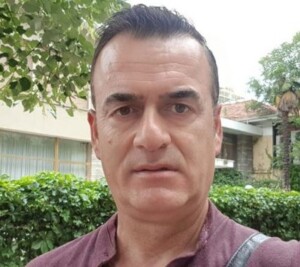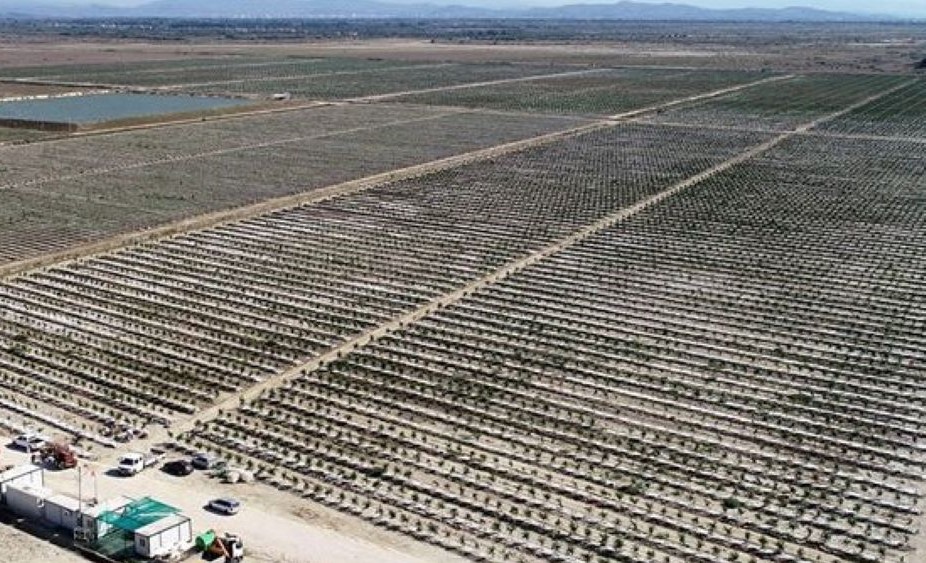“The biggest risk for most of us is not that our goal is too high and we cannot reach it, but that it is very low and we achieve it easily”

Shpetim Luku
The Albanian economy has agriculture among the priority sectors. There is a lot of discussion about the way of its development, to reach the standards of advanced agriculture. But in the Albanian reality there is an example that shows and allows you to imagine what Albanian agriculture would be like, such as the “Agro Iliria” society. Established in 2015 on a land of no value from the point of view of use for agricultural purposes according to traditional Albanian agriculture, Agro Iliria is today the largest agricultural farm in Albania and the region, but also a brilliant argument illustrating the theory that in order to cultivate the land you should know how to do it.
Partners Ilir Trebicka and Shpëtim Oseku had worked together in construction. They were thinking of doing an activity that was closer to nature. In 2015, the effort to concretize their desire and objectives began. Initially the idea was for hydroponic greenhouses. But from the first steps the difficulty began; There was no vacant land on large areas. Thus they were forced to take the salty lands of the former Karavasta swamp in Lushnje. Skeptics, but also friends did not approve of this initiative. But Shpëtim Oseku and his partner, convinced of their ideas, began to concretize them. In a meeting with an Israeli agronomist they also received confirmation of the accuracy of their business idea. “There is no bad land. “There is land that needs a lot of work and investment, there is also land where it is enough to sow the seed because it sprouts by itself,” he said. Thus “Agro Iliria” was born in unprofitable lands, in very salty lands.
“Agro Iliria” is a company certified as a national strategic investor, the only one in Albanian agriculture that has this status. In its technical staff there are 6 personalities of agricultural sciences, one professor from Israel, one from Italy and 4 Albanian professors.
“Agro Iliria” has planted 44 thousand goji berry roots and employs 200 seasonal workers to harvest goji berry about ten times a year. Agro Iliria has 80 hectares with pomegranates of two varieties, Acco which is harvested in early September and wonderful which is harvested in early October. It manages to harvest about 1300 tons of pomegranates from September to November.
Agro Iliria seems to represent a project that has not been completed. It has prepared to plant 100 hectares of pomegranates and within three years it will plant 700 hectares of pomegranates and at the end of 5 years, ie by 2026, there will be 180 hectares of agro-tourism, of which, 70 hectares of pine forest, 26 hectares of artificial lake where all kinds of water sports will be organized. There will be 3 hotel and restaurant buildings, the 300-year-old church of St. Marina will be reconstructed and enlarged, 200 wooden houses will be built, 200 posts for residential camper vans and 3.5 kilometers of road that will connect the village with the sea.
At the end of the project Agro Iliria will produce 20 trailers with pomegranate per day for 90 consecutive days, and it will install the first factory in the Balkans for pomegranate juice and one of the largest in Europe. It will build its own laboratory and a student-university chair in agriculture.
Like all other investors, especially in Agriculture, Agro Iliria has its difficulties. It is a society that works in the saltiest lands in the world and left barren for decades. There are great difficulties for labor, etc. “The biggest risk for most of us is not that our goal is too high and we cannot reach it, but that it is very low and we achieve it easily,” says Michelangelo.
Shpetim Luku is the Director of the Albanian Center for Investigative Journalism



Leave A Comment